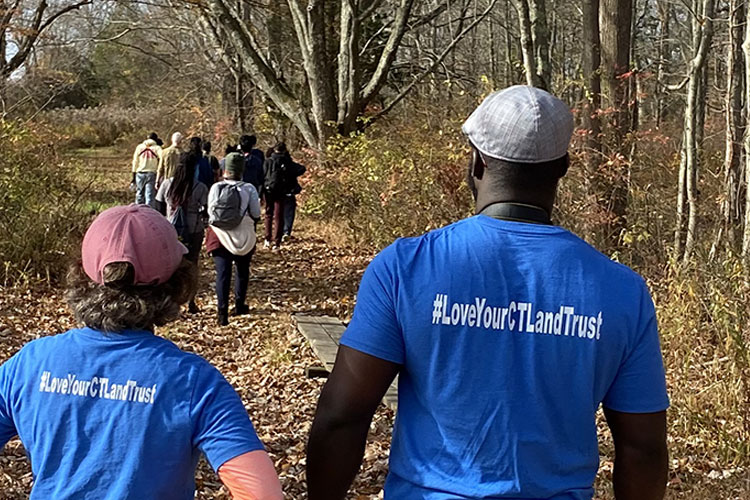News

“Collaboration between oil and water topics, spiced up, can make a good dressing for green pastures!”
– Pat Hackett, Salisbury Affordable Housing Commission
This is one of my favorite bits of feedback from the 2023 Summit on Housing and Conservation. Hosted on February 1, 2023, over 100 Summit attendees joined leaders and experts from across the state and beyond, to explore opportunities that lie at the intersection of affordable housing and land conservation. While these two land uses are often pitted against one another as an “either/or” proposition, we learned that both are possible – and necessary- to create healthy Connecticut communities.
In the weeks following the Summit, I’ve had the opportunity to continue some of the many conversations that started that day, and to reflect on the many opportunities and challenges that exist when conservation and affordable housing meet.
For me, a key takeaway was the important role that land trusts can, and perhaps should, play in creating more affordable housing. This doesn’t require changing missions or diverting resources away from land conservation projects. Instead, land trusts can be partners on affordable housing projects, collaborate with affordable housing nonprofits, and/or advocate for smart, sustainable development. With a land trust in nearly every community across Connecticut, the conservation community is well-positioned to help create healthy, livable towns and cities.
“The main takeaway that I’ll bring back to my board is that the conservation community is interested in working together on housing.”
– Justin Potter, President, Kent Affordable Housing
As partners and collaborators, land trusts can help to dispel the false narrative that land conservation and affordable housing are mutually exclusive. Land trusts can play a role in better municipal planning to avoid forest fragmentation and development of agricultural land. At the same time, land trusts can advocate for smart, sustainable, and affordable residential development and zoning reform.
“The importance of speaking up for each other’s priorities. If you’re not sure how to start, just get started!”
– Robb Johnson, Executive Director, Massachusetts Land Trust Coalition
There is still much work that needs to be done, and CLCC is committed to continuing this discussion through policy and collaboration roundtables. We will also be integrating these topics into our Regional Advancement Initiatives, which foster relationships between land trusts and non-conservation community partners to help address community needs. Together with our partners, we can explore ways of increasing collaboration, advocating for mutually beneficial policies, and creating new sources of funding for both conservation and affordable housing.
“[The Summit] was an excellent and important first step in explicitly recognizing housing as an issue conservationists both care about and can work on. The main thing now is to continue and broaden the conversation.”
– Connie Manes, Executive Director, Kent Land Trust
We thank the Land Trust Alliance and Trust for Public Land for co-sponsoring this program, and all of our presenters and panelists for making the Summit such a success. For more information about the Summit, including recordings, slideshows, and other resources, visit CLCC’s Summit Resources page.
![types] types]](https://ctconservation.org/wp-content/uploads/Aaron-Lefland-1.jpg)

